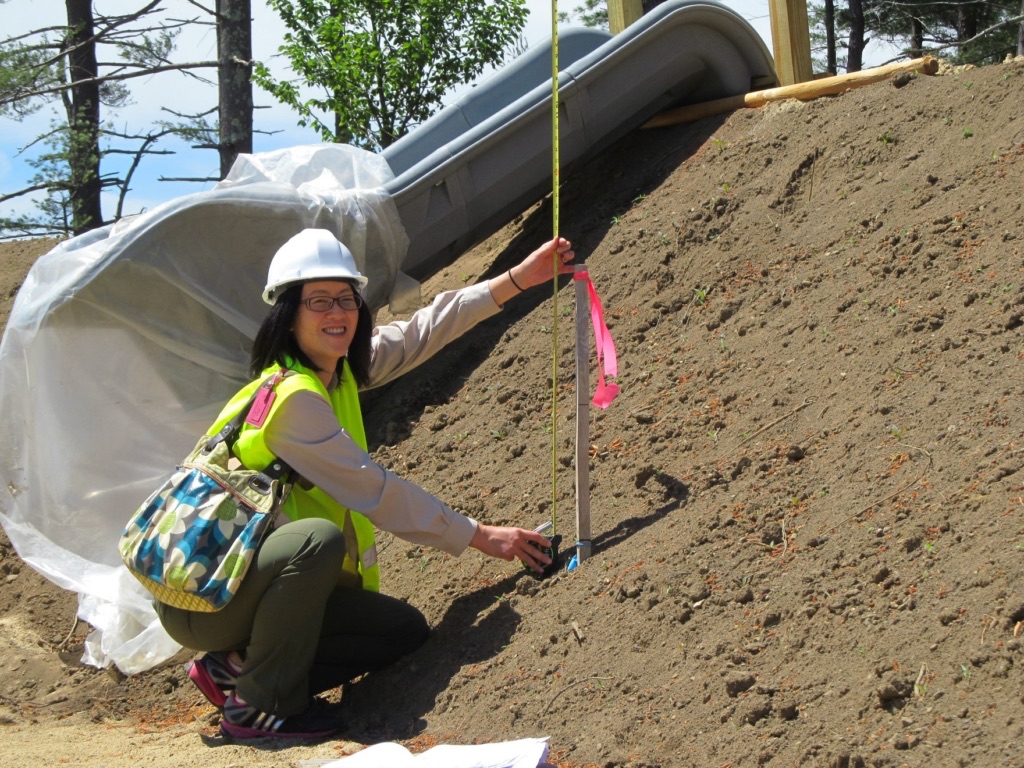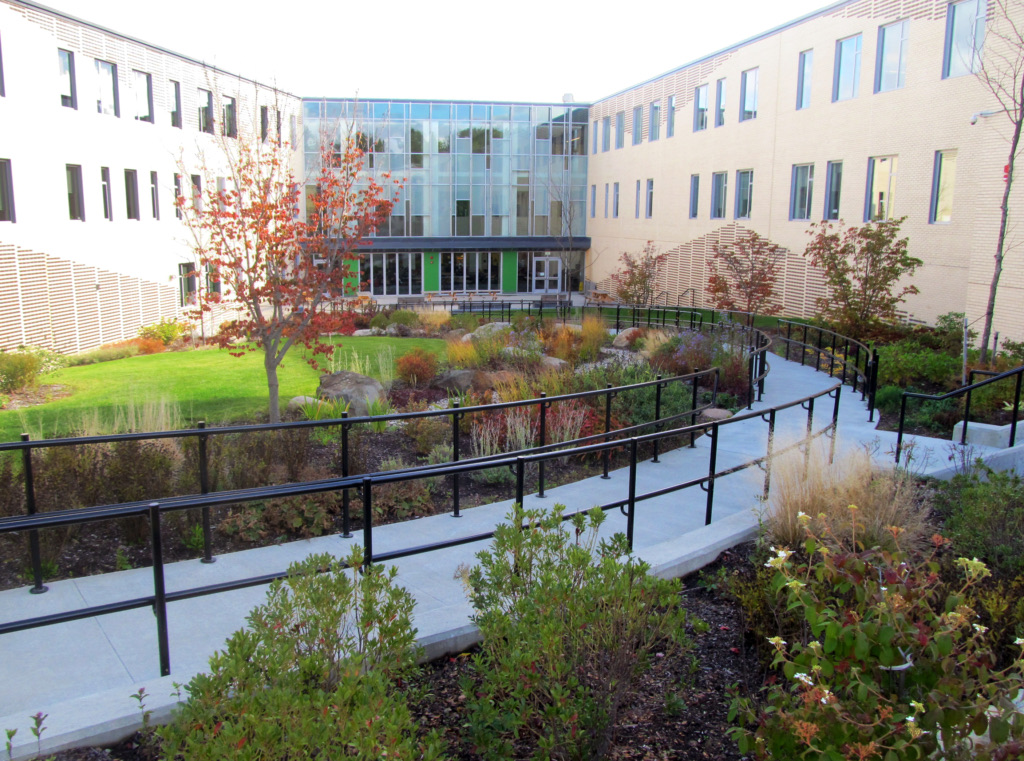Technical Specialist Spotlight: Iris Yung-Ching Lin uses Landscape Architecture to Provide Social and Environmental Benefits

Iris, Senior Landscape Architect, began her career in electronics engineering in Taiwan. Although she enjoyed the challenges of a high-tech industry, Iris found herself looking for a more fulfilling career, one that would allow her to apply her talents and interest in improving public spaces (and therefore our daily lives) while protecting our environment and conserving natural resources. Her search led her to the U.S. to study and earn her degree in landscape architecture. Over the past 16 years, Iris has found practicing landscape architecture to be the rewarding journey/career she was seeking, and she has been able to experience firsthand how her work can play a key role in the responsible use of land and have a positive impact on society and the environment.
Iris has enjoyed the design process, creatively solving complex site issues and meeting program needs with a pragmatic design solution while simultaneously bringing her ideas to a project. Her engineering background enables her to approach any design problem from multiple perspectives and to evaluate the logistics of each solution. She applies her landscape architectural training and artistic vision to create beautiful, functional outdoor spaces that are designed with the user experience and environmental conservation in mind. Iris’ multi-cultural experience has provided her with a deep understanding of how to work with nature in a variety of ways to enrich her designs.
Designing Spaces to Better Society and the Environment
An example of Iris’ work that embodies this unique design approach is the courtyard of the Dover High School in New Hampshire. The design needed to address a 12-foot vertical change, which posed a significant challenge for providing an accessible connection between the upper and lower terraces while creating programable spaces for gathering, reflection, and study. Iris created an elegant curvilinear path, consisting of a five-section ramp that runs through the courtyard along a dry stream with diverse planting and guides students from the outdoor dining terrace at the lower level to the oval open lawn at ground level. Terrace seat walls with lawn panels at the base of the slope form amphitheater seating for outdoor classroom and performance events while the open lawn and paving area with benches framed by shade trees at the upper plaza create a flexible space for group activities and provide breathing room between classes for students.

The curvilinear path designed by Iris for Dover High School in New Hampshire.
Iris says one of her most rewarding project experiences was the design of the Senator Joseph Finnegan Park at Port Norfolk, which transformed a contaminated industrial site into a neighborhood open space and restored the degraded shoreline back to a native saltmarsh habitat. The neighborhood—previously isolated and adjacent to an eyesore—has greatly benefited from its new waterfront park, as have the wildlife that now call the meadow and wooded area home.
Currently, Iris is working on the Whittier Choice Neighborhood Development in Roxbury. The site design for this affordable housing development features a variety of outdoor amenities, including courtyards, public gathering areas, playspaces, and a welcoming streetscape to encourage pedestrian and multi-modal use. Once Whittier Choice is complete it will have a significant impact on the underserved Roxbury community, whose voices were heard and needs addressed through a landscape design that promotes safety, equality, and access to high-quality outdoor spaces.
Using Her Expertise to Make a Difference
Outside of her day-to-day responsibilities, Iris has served as a member of the Wellesley Design Review Board since 2018. She applies professional expertise to make recommendations on construction projects to ensure the designs preserve and enhance the neighborhood characteristics and improve sustainability in the town. Iris has continued to broaden her experience and was recently selected to join ULI’s Pathways to Inclusion Cohort for 2020/2021. The Pathways to Inclusion program is designed to increase the participation of groups who are underrepresented in the land use and real estate fields. As a Taiwanese woman working in the design and real estate field, Iris is confident her participation will bring diversity to the organization and industry. “I’m looking forward to the opportunity to collaborate with others to create projects that offer significant economic, social, and environmental benefits and make a more sustainable and inclusive society,” said Iris.


